Helping every type of learner succeed in the microbiology classroom
The Sixth Edition of Microbiology: An Evolving Science inspires students to engage with the most cutting-edge research in the field through new digital tools and a transparent pedagogical framework.
Complete this form to receive Digital Access (Instructors Only)
The Sixth Edition includes the most cutting-edge and current research:
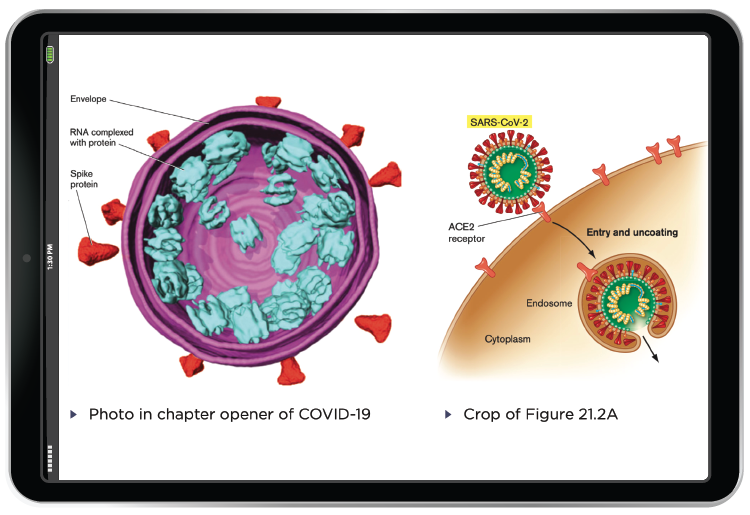
An expanded focus on microbial communities as a unified field of microbial analysis, whether human microbiomes or marine benthic biofilms.
New sections on virology and immunology detail the replication cycle of SARS-CoV-2 coronavirus and the pathology of COVID-19, as well as frontier discoveries in immunology and mRNA vaccines.
- Restructured coverage of complex molecular systems. Chapter 12 has been redesigned as an exploration of how mechanisms of signaling and gene regulation are coordinated to provide complex bacterial behaviors such as chemotaxis, biofilm formation, and phage defense.
- The global impact theme touches on how to use microbial catabolism to remediate plastic pollution or genetics to breed thermotolerant corals, and also touches on climate change.
The human microbiome theme touches on the “old friends” hygiene hypothesis and microbiome-brain connections.
A balance between cutting-edge ecology and medicine, using case histories in the medical section.
The Sixth Edition balances depictions of scientists from historically underrepresented groups, including young researchers.
Connections to current events keep students interested in and informed on the role of microbiology in the world today.
Now with 2024 Current Research Updates in the ebook!
To demonstrate the ever-evolving nature of microbiology and keep this edition up to date, the authors have added four Current Research Updates.
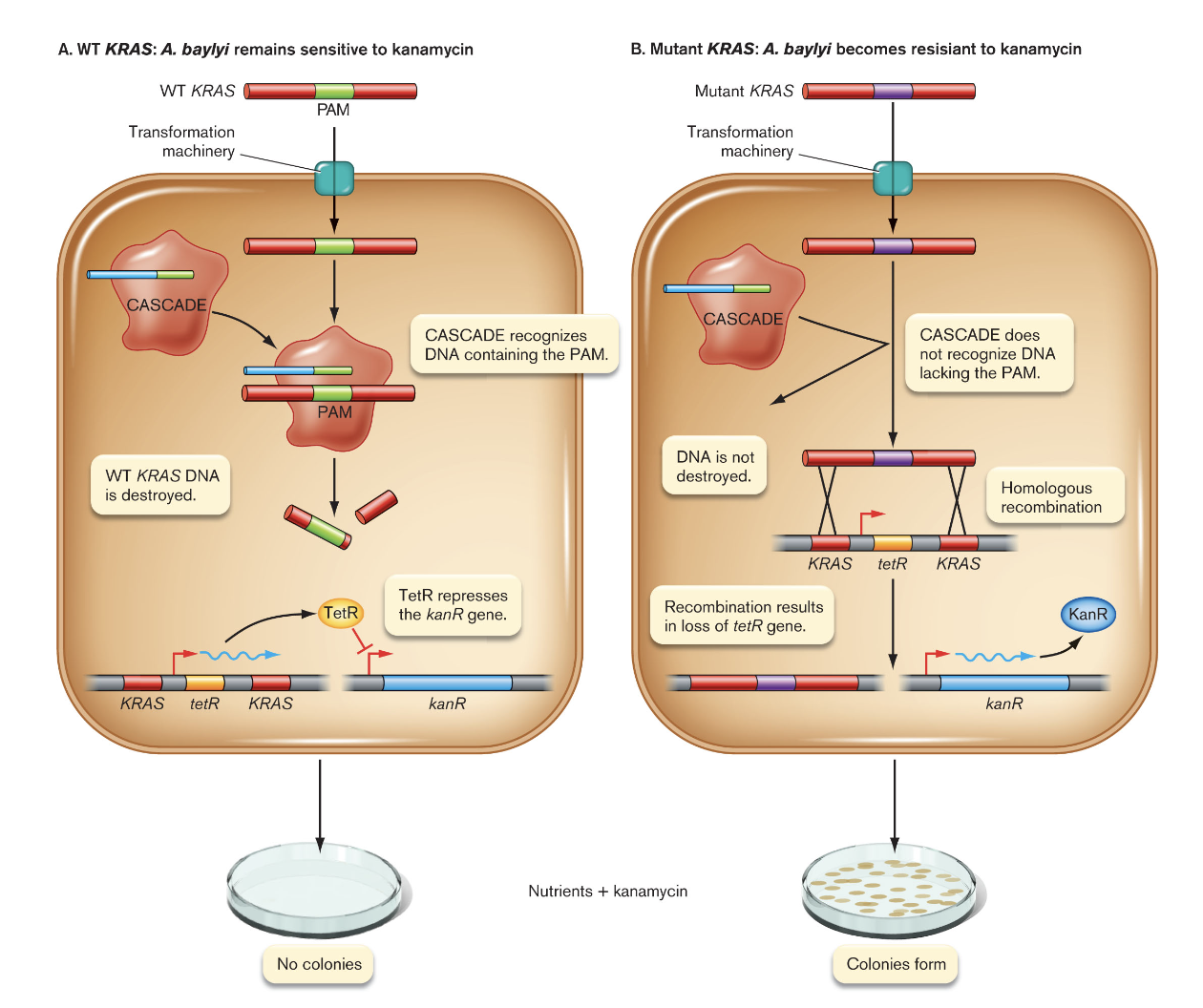
Each updates features a new research technique that has application in health and industry. The topics are below, along with their corresponding chapter:
Chapter 9: Bacteria “CATCH” DNA to Detect Cancer
Chapter 16: Aspergillus: A Billion-Dollar Cell Factory
Chapter 19: Asgard Archaea: Origin of the Eukaryotic Cell
Chapter 23: Cross-Domain Syntrophy in the Human Gut
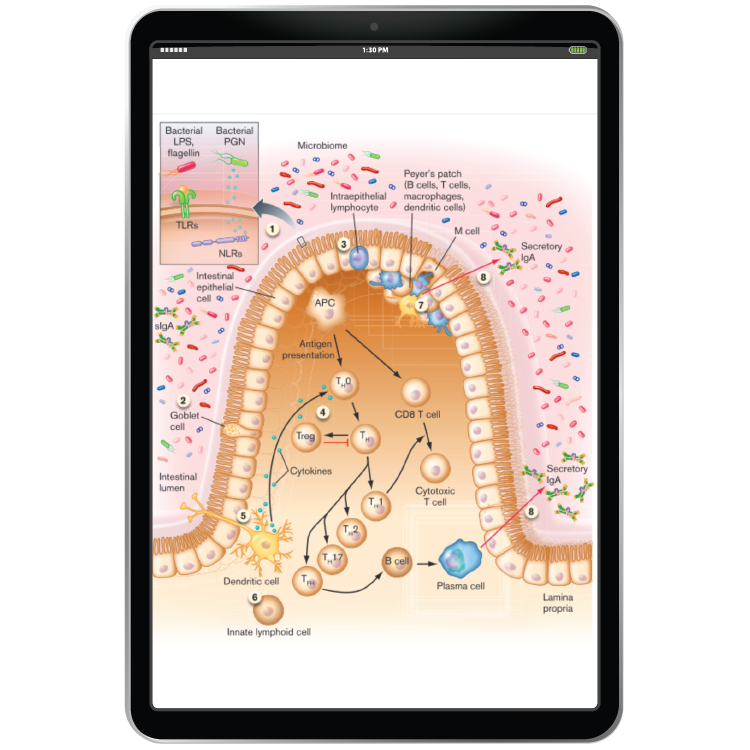
Two new integrated research themes
New current research examples that are centered on the human microbiome and global impacts show students why microbiology is exciting and relevant. These themes are integrated throughout every chapter.
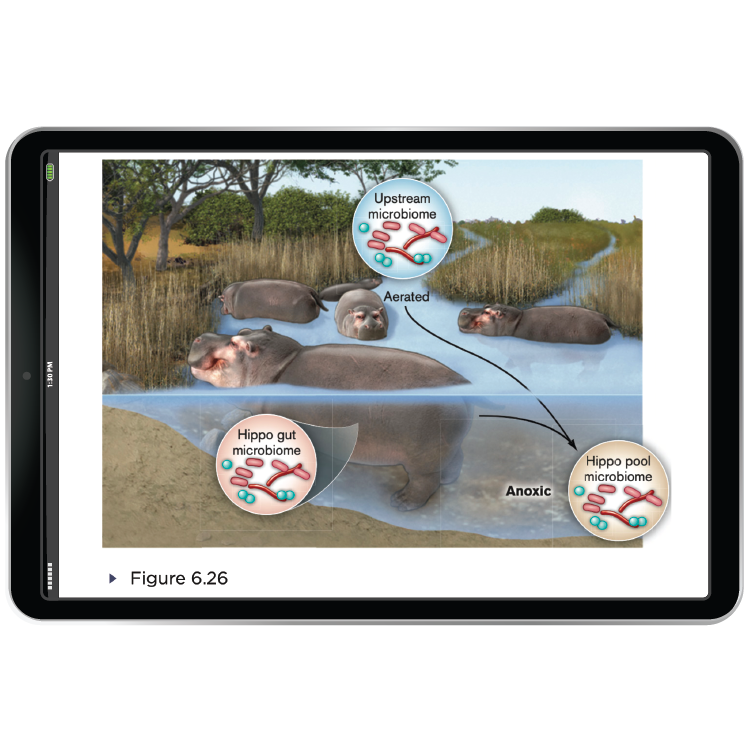
A vibrant visual program
The artwork in the Sixth Edition brings difficult concepts to life, making it easier for students to interact with challenging processes in conceptual and clear ways. Animations and research videos guide visual learners.
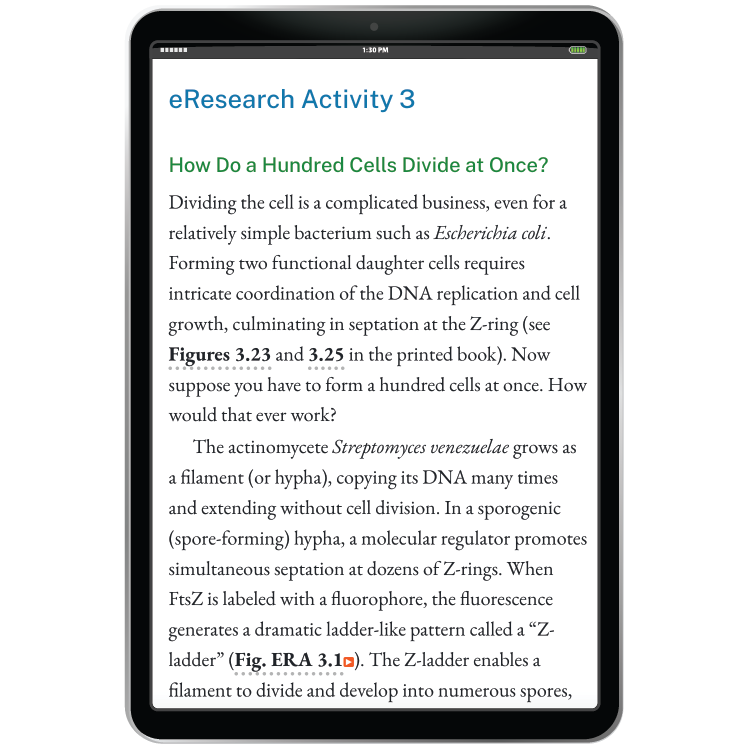
Resources that help students analyze primary literature
It’s challenging to develop primary literature reading skills. Research Activities in the Norton Illumine Ebook, primary literature questions in Smartwork, and primary literature activities in our Norton Teaching Tools help you meet this goal.
About the Authors
Joan Slonczewski received their PhD in molecular biophysics and biochemistry from Yale University and have taught microbiology at Kenyon College. They have served as an At-Large Member representing Divisions on the Council Policy Committee of the American Society for Microbiology.
John W. Foster received his PhD from Hahnemann University and teaches at the University of South Alabama College of Medicine. He has served as Chair of the Microbial Physiology and Metabolism division of the American Society for Microbiology.
Erik R. Zinser received his PhD from Harvard Medical School and teaches at the University of Tennesse-Knoxville. He has been a member of the American Society of Microbiology since college.








